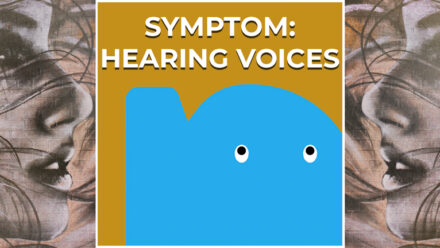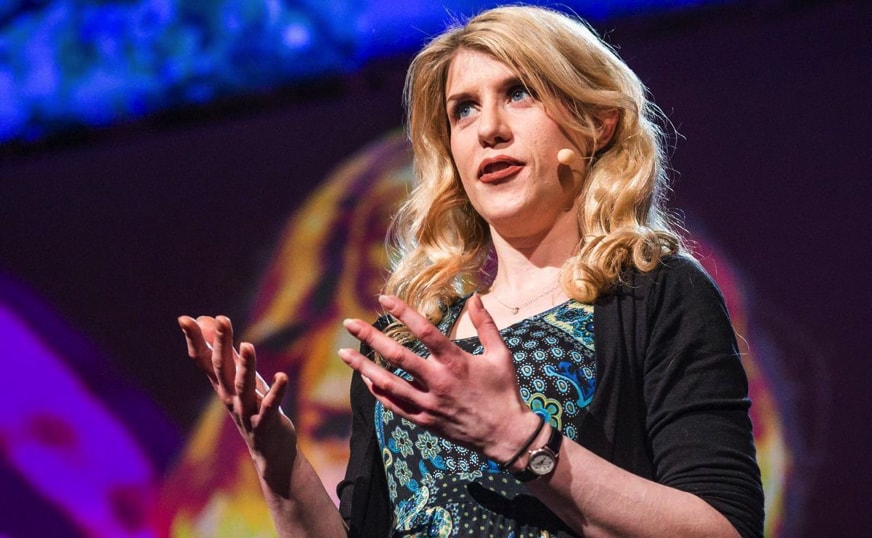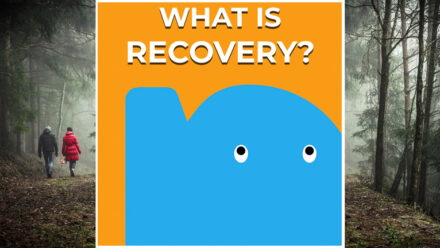
Irene works as a board member of Phrenos: a knowledge centre about treatment and recovery from severe mental illness. She is still pleasantly surprised about this function, after spending a large part of her life as a psychiatric patient herself. Against all expectations, she recovered and now even runs her own company. It was time for Irene to take these steps, just to discover what she is capable of.
“As a child, I went through (sexual) abuse. And when I was 17, I was taken to the hospital for hearing voices and other hallucinations. The doctors immediately started speaking of schizophrenia. This meant that I was put on medication right away.
Looking back, I understand that those voices and paranoia were traumas looking for a way out
Back then, there was only one answer to my problems: suppress everything with medication. Although this all happened about 25 years ago, I still see this response pattern today.
The standard medication, and easily using more than the regular dosage, has caused me lots of damage. For over twenty years, I was on practically every kind of antipsychotic. For years, my weight was over 140 kilos and my eyesight went down about a point per year. I was deeply concerned about these side effects, because I did not know where they would end. I can still get upset about the idea that they hardly kept an eye on this. For example, I started lactating (producing milk) at one point, which triggered delusions about being pregnant.
The schizophrenia diagnosis further confused me. To me, the voices were more like a way of dealing with all my negative experiences
When my care workers interpreted the voices in my head as symptoms of schizophrenia, things got confusing for me. From then on, I saw my voices and hallucinations as a disease. The established diagnosis only made things harder. It felt as if I was accused twice for my situation. Aside from all the bad stuff happening in our family, some authority figure said that I was actually the one who was ill. I couldn’t believe what was happening to me. Partly because of this, I was kept in isolation for a long time. And it’s no mystery why I was angry: I simply did not understand. Therefore I expressed my anger in any possible way, just to remain in control.
I am not completely against medication, because they also gave me benefits. And sometimes I was so far out, that being drugged out was the only solution
But aside from that, my personal development was so much more important than any medicine.
Physically I was very strong, and in our family it was not encouraged to speak out. My care workers on the other hand, wanted to do nothing but talk, while I could express myself much better through drawing, for instance. I can still recall what I once said to a psychiatrist who asked about my sex life. ‘What are you talking about?’, feeling he invaded my privacy.
Later, with the help of my foster father, I dared to step towards a physiotherapist for physical exercise. This helped me a lot, because now we could step outside of my thoughts and focus more on what was boiling up inside me. At first, it helped me to have group discussions about everyone’s deepest secrets. I realised here it wasn’t strange at all to discuss serious issues, and that I wasn’t the only one dealing with negative experiences.
Everything I had went through, had an impact on my life experience. I realised more and more where all my troubles came from
I realised that hearing voices, and mutilating myself, were a means of communication. And that this tendency was a consequence of the abuse I had experienced.
When I felt I had gathered enough tools to live my own life and quit medication, I found no support. Everyone just coldly declared I could not do it. My general practitioner even refused to go that way. Eventually, I took some months off and stopped treatment. The first four months, nothing happened. I was even shocked that no one got into contact. And then, things got really rough. It seemed like electricity was passing through me all the time. But no one had told me that my emotions would return again.
When you quit medication, you need a counterbalance to slowly learn to manage your emotions. This is the time when you need therapy more than ever. But I did not have a clue. This period was one big disappointment.
The fact that my foster father, my former teacher, took responsibility over me, turned out to be my rescue.
My foster father understood that medication by itself was no solution for someone who carries such an amount of trauma
When he proposed to start talking with me, the professionals’ only response was: ‘But that will make her psychotic again’.
I owe much to him for bluntly telling them: “If psychiatry won’t give us what we need, then we will look elsewhere’.
My foster father eventually did what a therapist should be doing. He read lots of literature, entered conversations with my voices and encouraged me to get to work. Looking back on it now, it seems absurd. He always had to go his own way to make this happen. And all the time, he had a child in psychiatry that was being told there was no life for her out there.
Because he made me believe in my own capabilities, and stimulated me to live a normal life, I have reached the point where I am now”
Recovery Talent is Irene’s own freelance company, dedicated to transferring knowledge about recovery processes where people have gone through.
Read more about Recovery:




Comments: